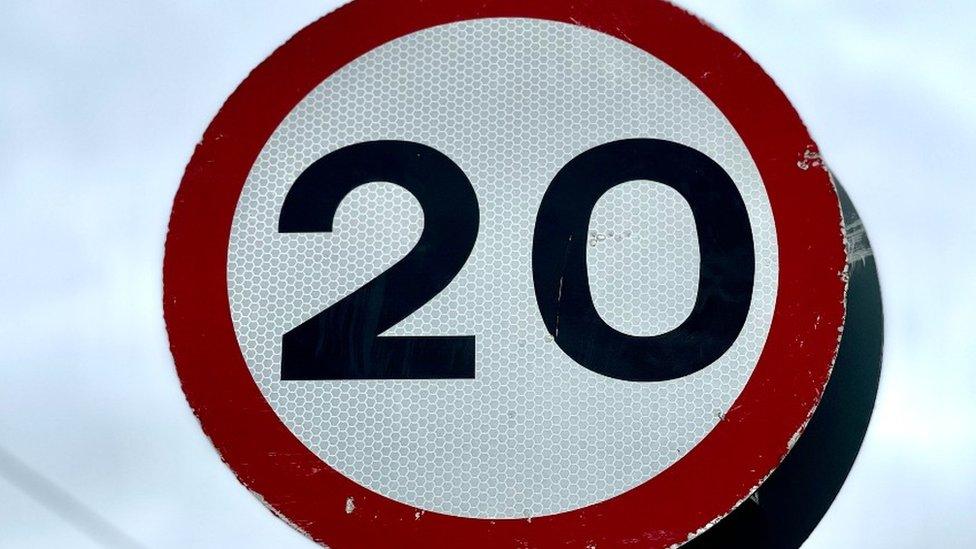Speed limit cut won't hurt Wales' economy, says minister
- Published
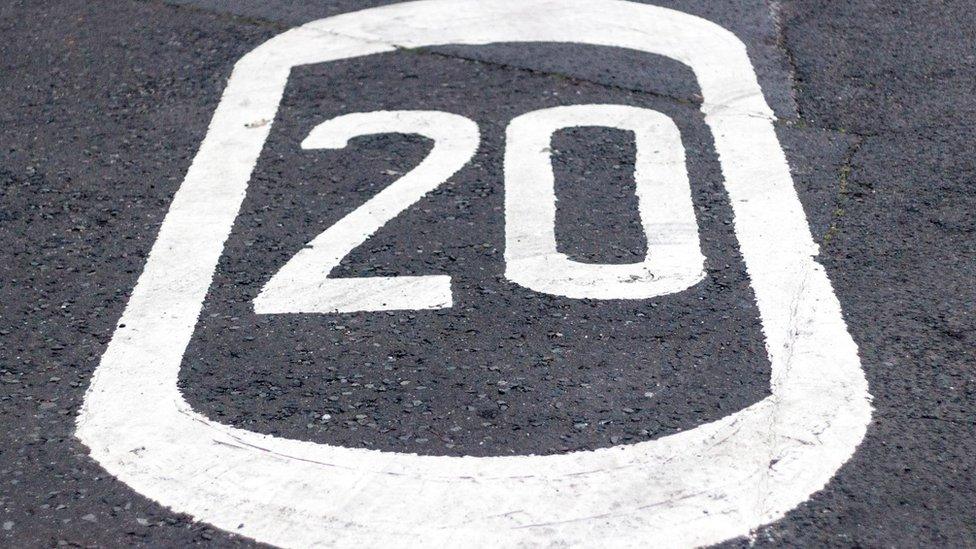
The 20mph limit would come into force for all restricted roads
Warnings that lowering the speed limit from 30mph to 20mph will harm the economy have been "discredited", a Welsh government minister has said.
One of the government's own documents said longer journeys could cause a "substantial" economic disadvantage.
The default speed limit will be cut in built-up areas next September.
But deputy climate change minister Lee Waters said he did not believe it, adding that it would make the streets safer for walkers and cyclists.
Anywhere between 40 and 440 lives could be saved over 30 years, according to a government analysis, saying this would save money for the emergency services and could help the economy, external.
The document also warned that slower journeys for commuters and people who drive for a living meant its "central estimate" was an economic hit of £4.5bn over 30 years, but acknowledged there was "significant uncertainty" over the figure and "active professional debate" about how it was calculated.
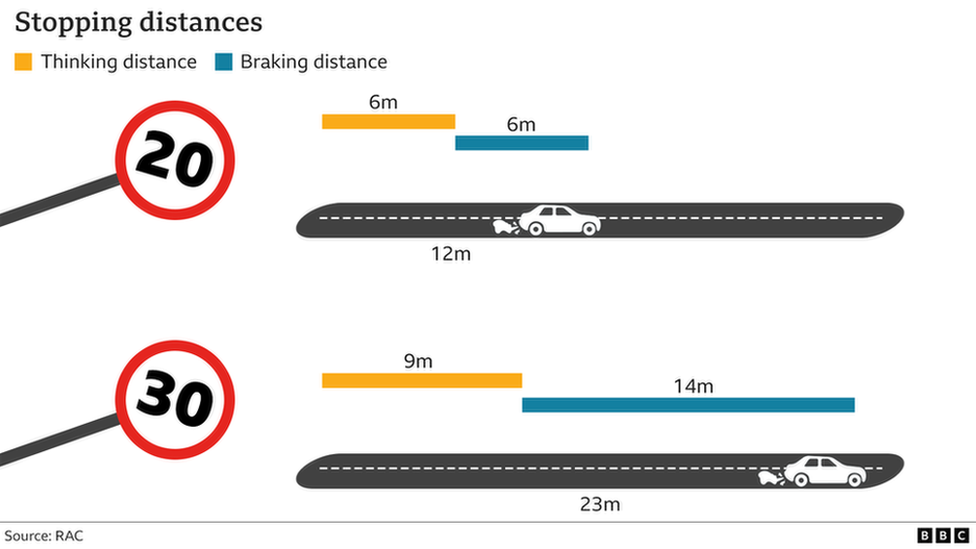
Journeys are expected to be less than a minute longer on average, with the vast majority affected by less than two minutes.
Mr Waters said: "The idea that being a minute later to get to school harms the economy, I just don't believe it, so I think the figures are discredited in my view and there's a movement to change that.
"Also it's going to save lives - we know it's going to save lives."
Separate research commissioned by the government found cutting the speed limit could save £100m in its first year alone.
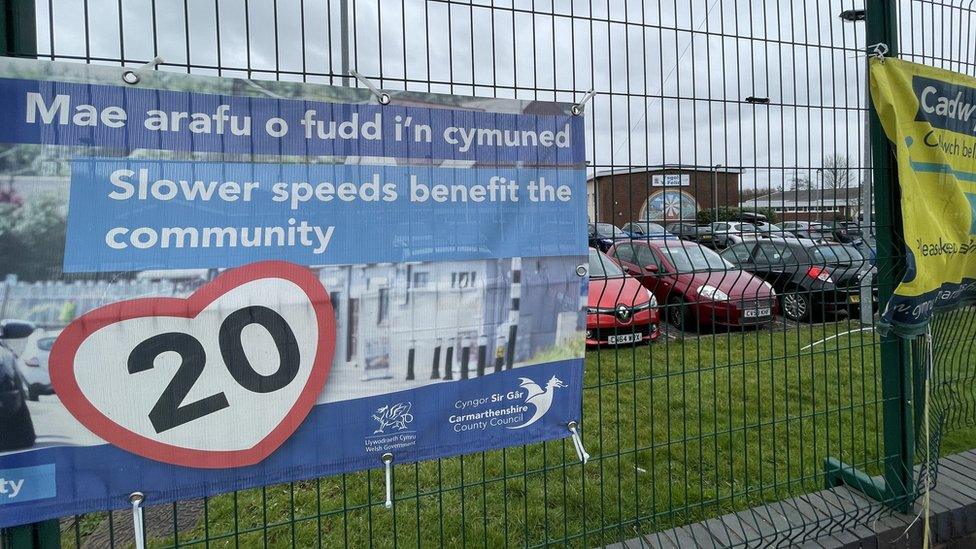
A sign of things to come? Most residential roads in Wales could see 20mph restrictions next year
The Welsh Conservatives said 20mph speed limits should be at the discretion of councils, but should always be in place outside schools and playgrounds.
Welsh Conservative spokeswoman for transport, Natasha Asghar, said: "Research is far from conclusive with studies showing 20mph limits could have a detrimental impact on issues such as public transport.
"Labour need to get Wales moving again by dropping these dogmatic plans, ending the roadbuilding ban and investing in improved infrastructure for both public and private transport, rather than wage a war against drivers."
The law was voted through by the Senedd in July and will change on 17 September 2023.
Mr Waters said it would be a "big change" initially, but people would get used to it quickly, as they did when seatbelts became compulsory.
Up to 7,700 miles (12,535km) of roads could be affected, although councils will be able to keep the old speed limits in some cases.
Caldicot in Monmouthshire has been a pilot zone for the 20mph limit.
The council is restoring the 30mph limit on two sections of road after complaints about congestion.
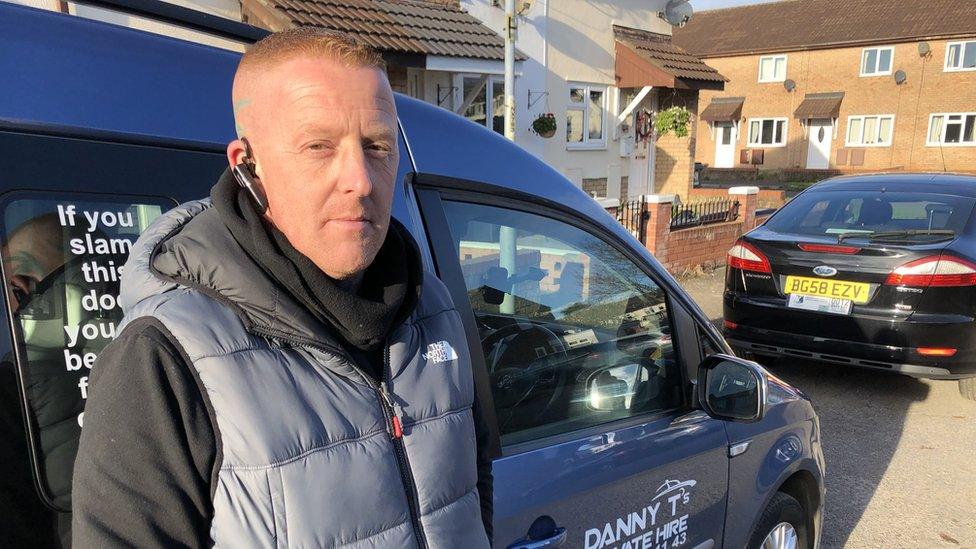
Dan Thompson thinks the speed limit should be targeted when children are at school
Dan Thompson has been a taxi driver in the town for 16 years and said he saw traffic get "a lot worse".
"Literally overnight, the moment it went to 20 miles an hour is when the sheer volumes of traffic started to build up."
He said the speed limit should be targeted, so it drops to 20mph when children are going to and from school, rising back to 30mph during the day.

Caderyn (far left) said if he feels safer walking on his own in a 20mph zone
Durand Primary School children have been tracking how far they walk to school, and pupils in Year Six said slower traffic made them feel safe.
Olly said: "It's a lot safer to cross the road when you're walking by yourself."
"It's safer around pedestrianised areas with slower speed limits," Alex said.
Molly added: "If I'm walking alone to somewhere it's going to be much more safe."
- Published29 November 2022
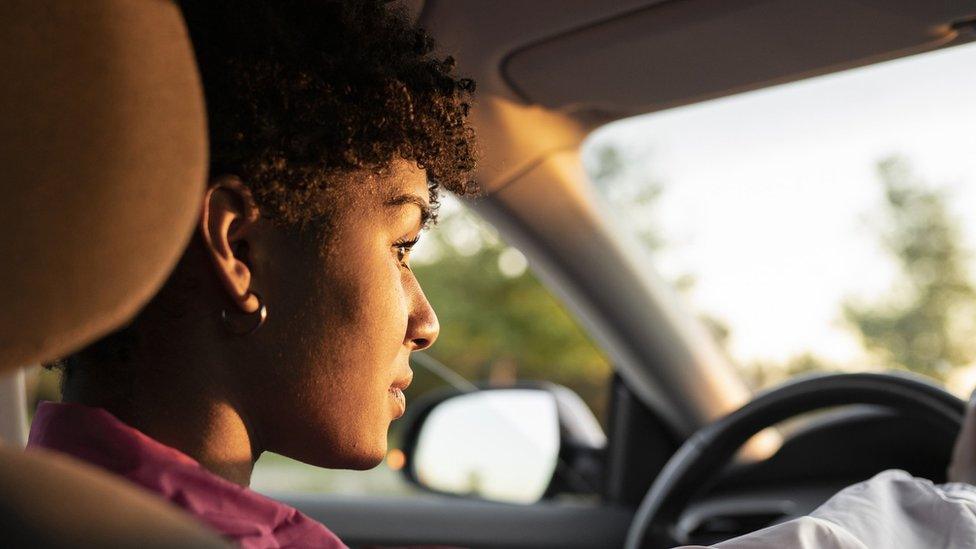
- Published16 November 2022
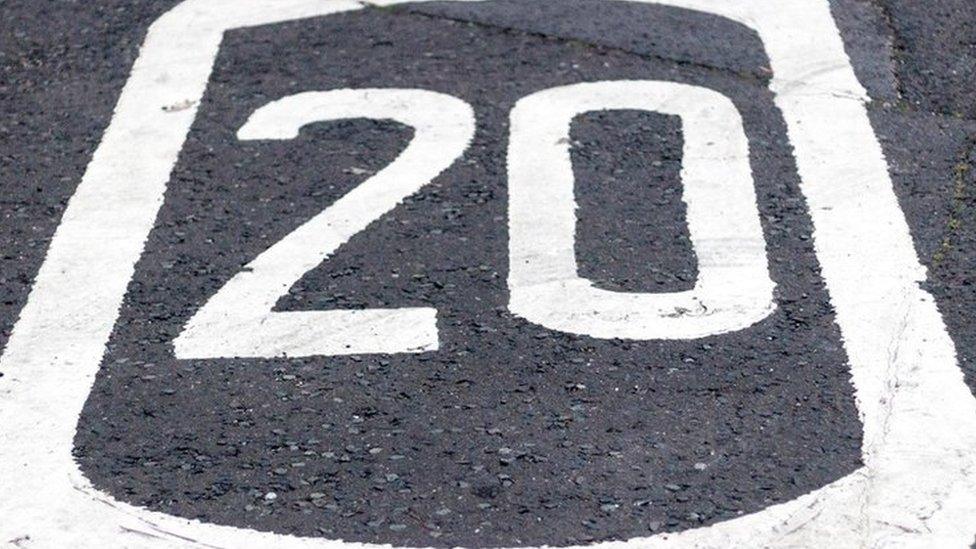
- Published7 November 2022
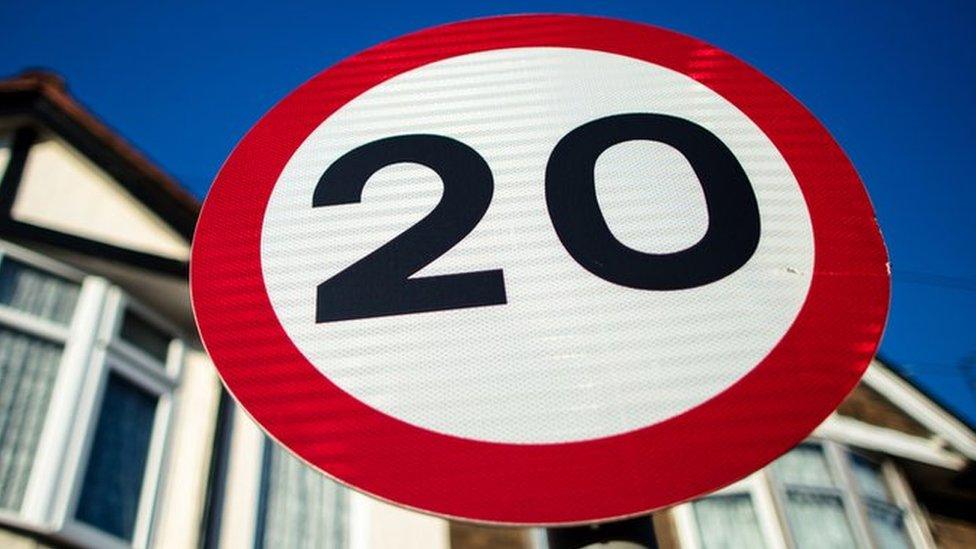
- Published12 July 2022

- Published11 March 2022
